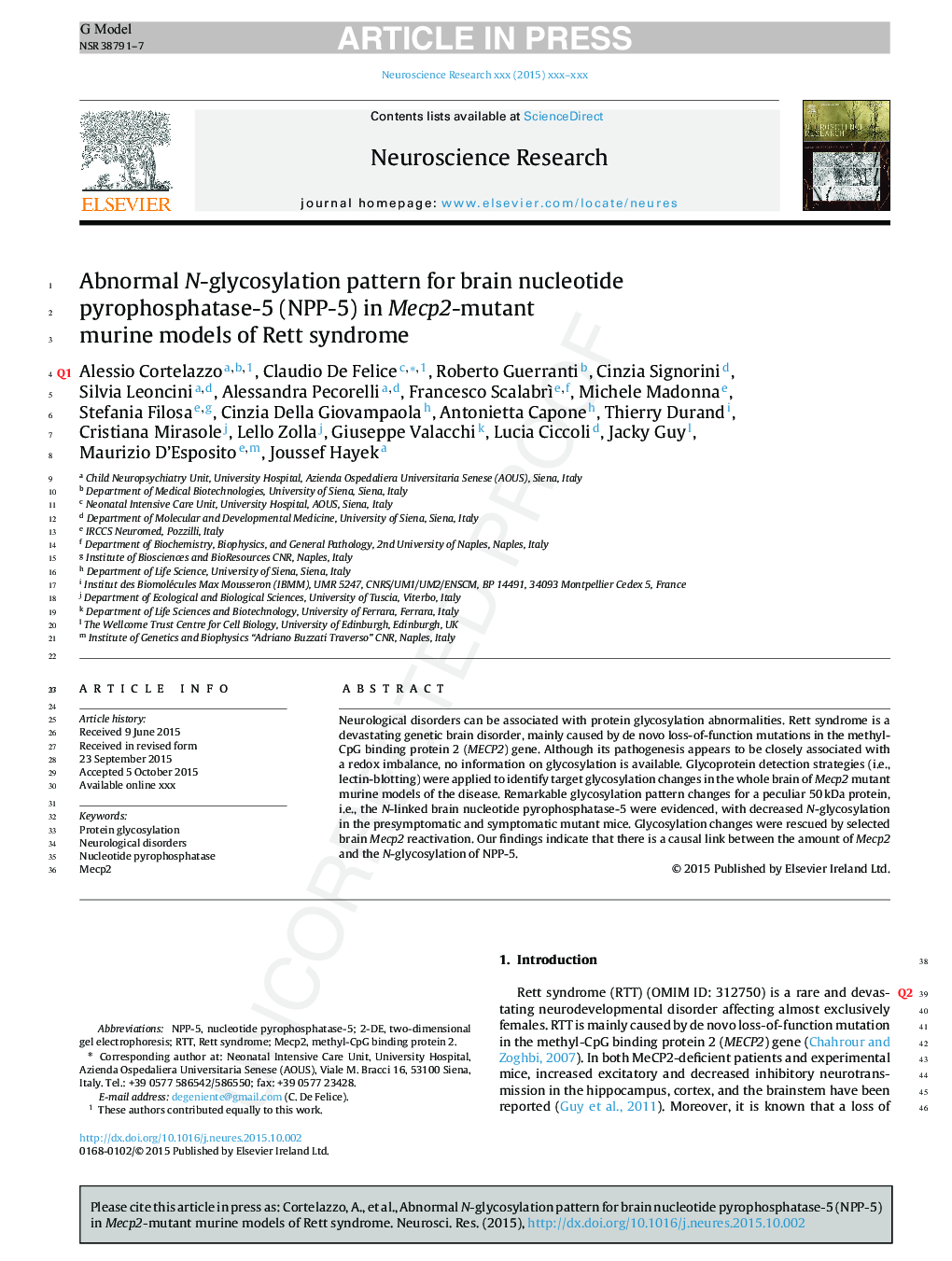| Article ID | Journal | Published Year | Pages | File Type |
|---|---|---|---|---|
| 6285973 | Neuroscience Research | 2016 | 7 Pages |
Abstract
Neurological disorders can be associated with protein glycosylation abnormalities. Rett syndrome is a devastating genetic brain disorder, mainly caused by de novo loss-of-function mutations in the methyl-CpG binding protein 2 (MECP2) gene. Although its pathogenesis appears to be closely associated with a redox imbalance, no information on glycosylation is available. Glycoprotein detection strategies (i.e., lectin-blotting) were applied to identify target glycosylation changes in the whole brain of Mecp2 mutant murine models of the disease. Remarkable glycosylation pattern changes for a peculiar 50Â kDa protein, i.e., the N-linked brain nucleotide pyrophosphatase-5 were evidenced, with decreased N-glycosylation in the presymptomatic and symptomatic mutant mice. Glycosylation changes were rescued by selected brain Mecp2 reactivation. Our findings indicate that there is a causal link between the amount of Mecp2 and the N-glycosylation of NPP-5.
Related Topics
Life Sciences
Neuroscience
Neuroscience (General)
Authors
Alessio Cortelazzo, Claudio De Felice, Roberto Guerranti, Cinzia Signorini, Silvia Leoncini, Alessandra Pecorelli, Francesco Scalabrì, Michele Madonna, Stefania Filosa, Cinzia Della Giovampaola, Antonietta Capone, Thierry Durand, Cristiana Mirasole,
